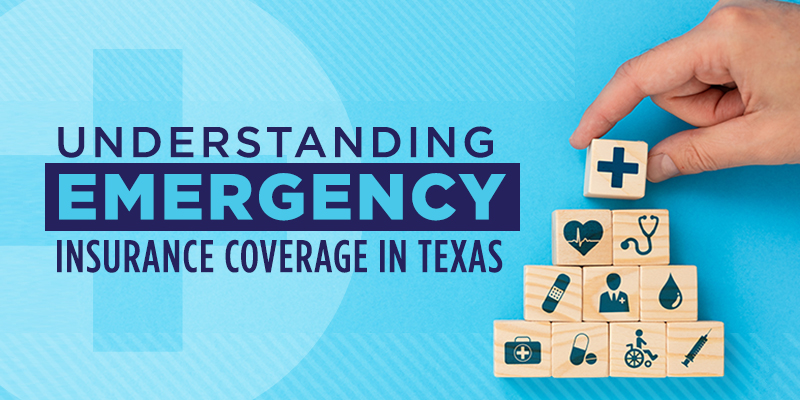Insurance coverage and medical billing are topics that we – understandably – get many questions on. Even as medical professionals, we can get confused by insurance language (luckily, we have a whole team of experts to help us and YOU navigate billing and insurance). Because the topic is complicated, we try to help our communities understand the laws around insurance and emergency medical billing.
How much will it cost to go to the ER?

The amount you pay for an ER visit depends on your specific insurance plan. However, there are laws in place that limit the total amount that your insurance company can require you to pay. The Affordable Care Act – also referred to as the ACA or Obamacare – protects emergency room care by requiring that your insurance plan cover emergency care without the need for prior approval, even if the hospital or emergency room you arrive at is out-of-network. This means that insurance companies cannot refuse or deny coverage for emergency care. There may still be some patient cost responsibility for either copay or coinsurance and deductible, which are set when you enroll in your insurance plan. This ensures you know what you owe at the time of service. Patients should know what their copay or co-insurance and deductible are (many times these are printed on your insurance card).
Finally, facilities cannot practice ‘balance billing.’ This means that the facility at which you receive care can not send you a bill for the remaining balance that may not have been covered by the insurance company. Patients are only responsible for their copay, deductible, or coinsurance.
What constitutes an emergency?

Both federal law and the Texas Insurance Code recognize what is commonly called the “prudent layperson standard” for determining an emergency situation. This is a complicated way of saying that you only have to have an average knowledge of medicine and health to determine if a situation is an emergency. You can seek healthcare services provided in a hospital emergency facility, freestanding emergency medical facility (hey, that’s Neighbors!), or a comparable facility if you believe a person’s condition, sickness, or injury to be such that failure to receive immediate medical care could result in:
- Placing the person’s health in serious jeopardy;
- A serious impairment to bodily function;
- A serious dysfunction of a bodily organ or part;
- Serious disfigurement; or
- In the case of a pregnant woman, serious jeopardy to the health of the fetus.
What if the facility is in-network with my insurer?

If the facility in which you seek emergency care is already in-network with your insurer, that’s great! Being ‘in-network’ means that your health insurance provider and the facility at which you received care have already negotiated rates for payment of services. However, as stated above, in the case of an emergency, you can seek care anywhere and your insurance is required to honor your in-network copay or coinsurance, deductibles, and any other fees governed by in-network and out-of-network coverage.
Is Neighbors Emergency Center in-network with any insurers?

Yes! Neighbors Emergency Centers are in-network with BlueCross BlueShield (BCBS) of Texas, Cigna, and Aetna, as a part of our hospital outpatient affiliation with Altus Baytown Hospital. All our locations accept Medicare and Traditional Medicaid.
What if I have questions about my Neighbors bill?

We have a whole team of dedicated Patient Advocates responsible for guiding you through the process of understanding your emergency bill and how your insurance coverage applies. If you have been to a Neighbors Emergency Center and you have any questions about your bill, you can contact our Patient Advocates at 346.324.5100 ext. 5008.
We hope this has been helpful! What other insurance or billing topics would you like us to write about?

